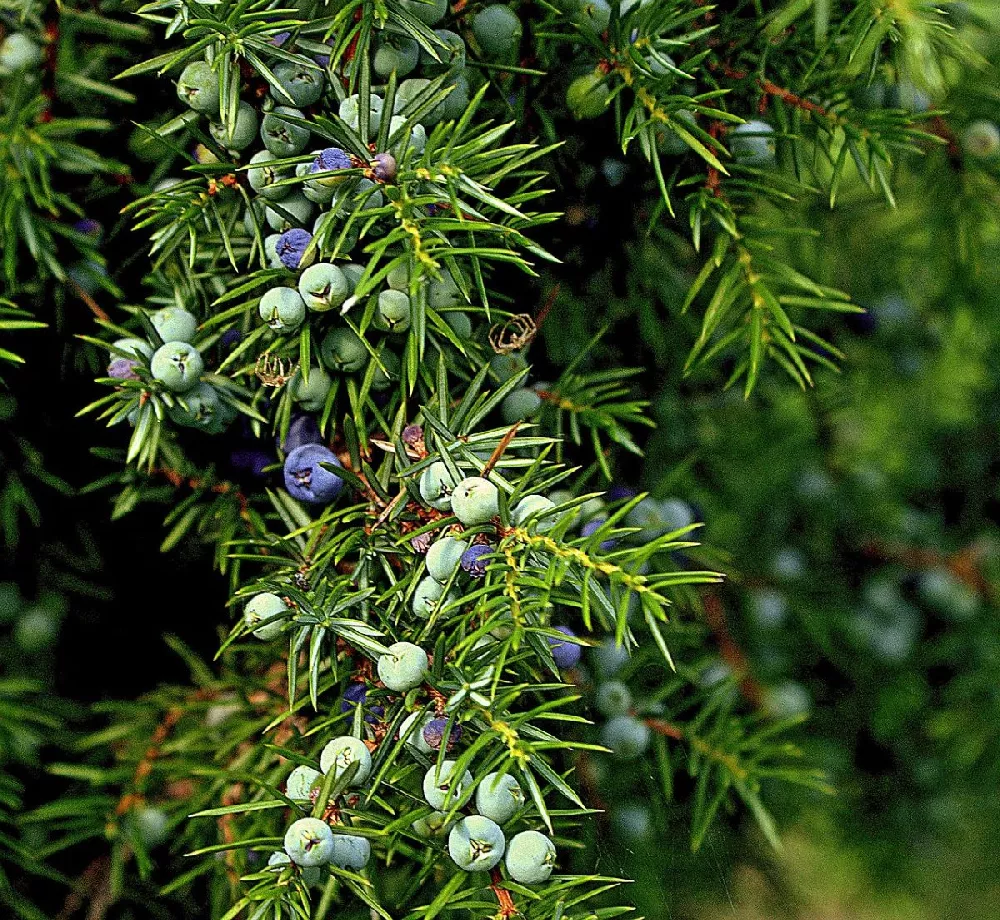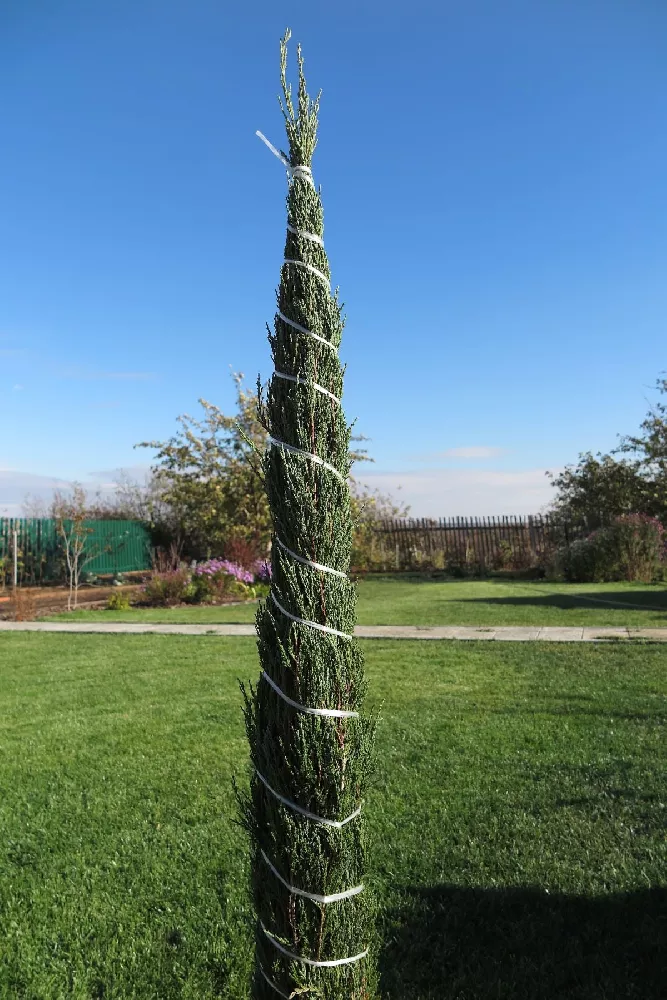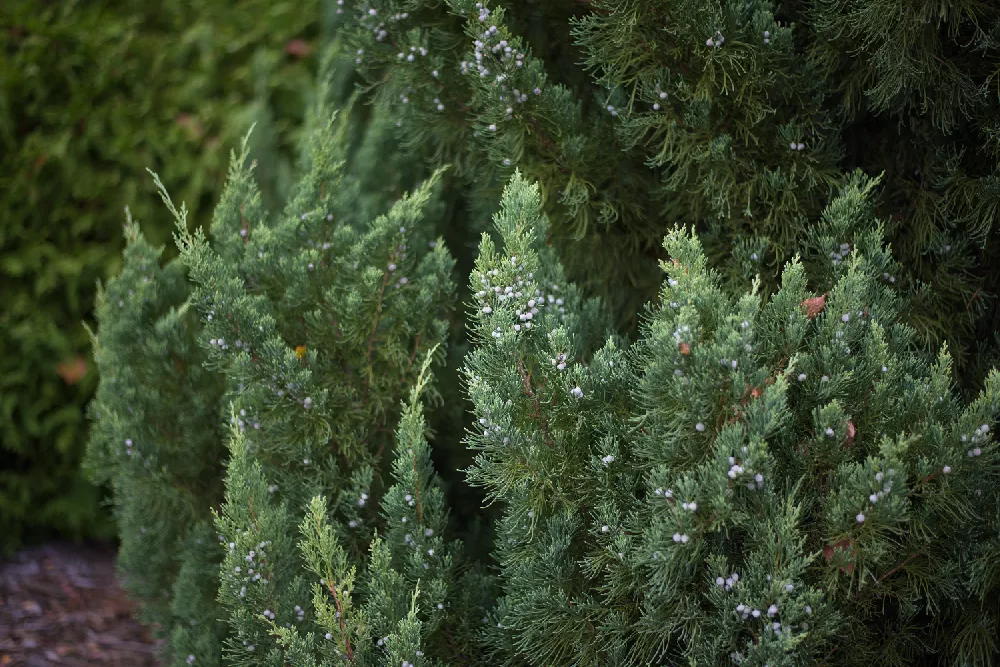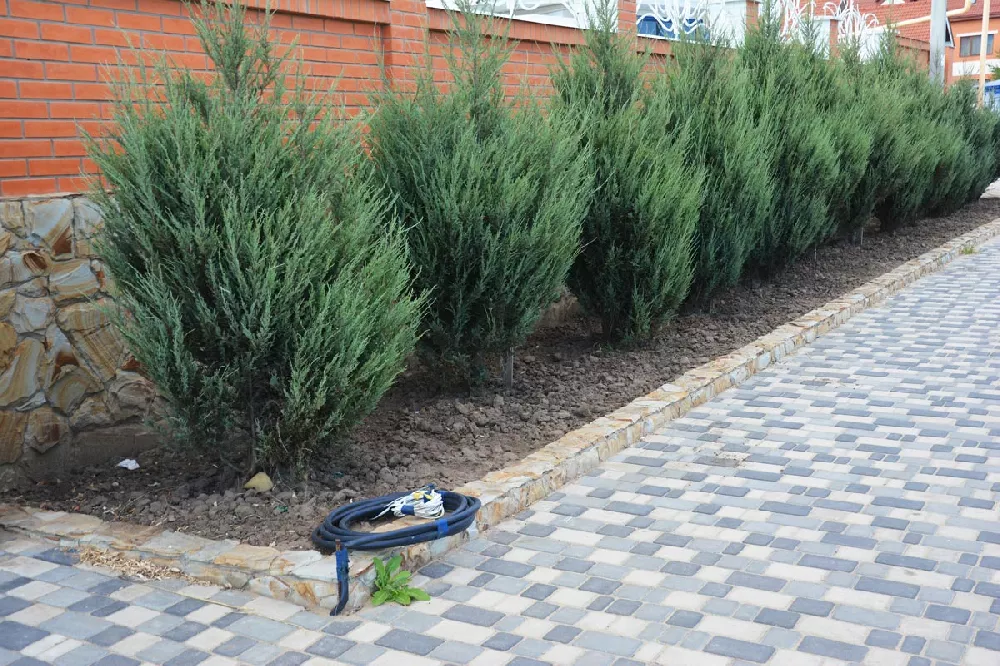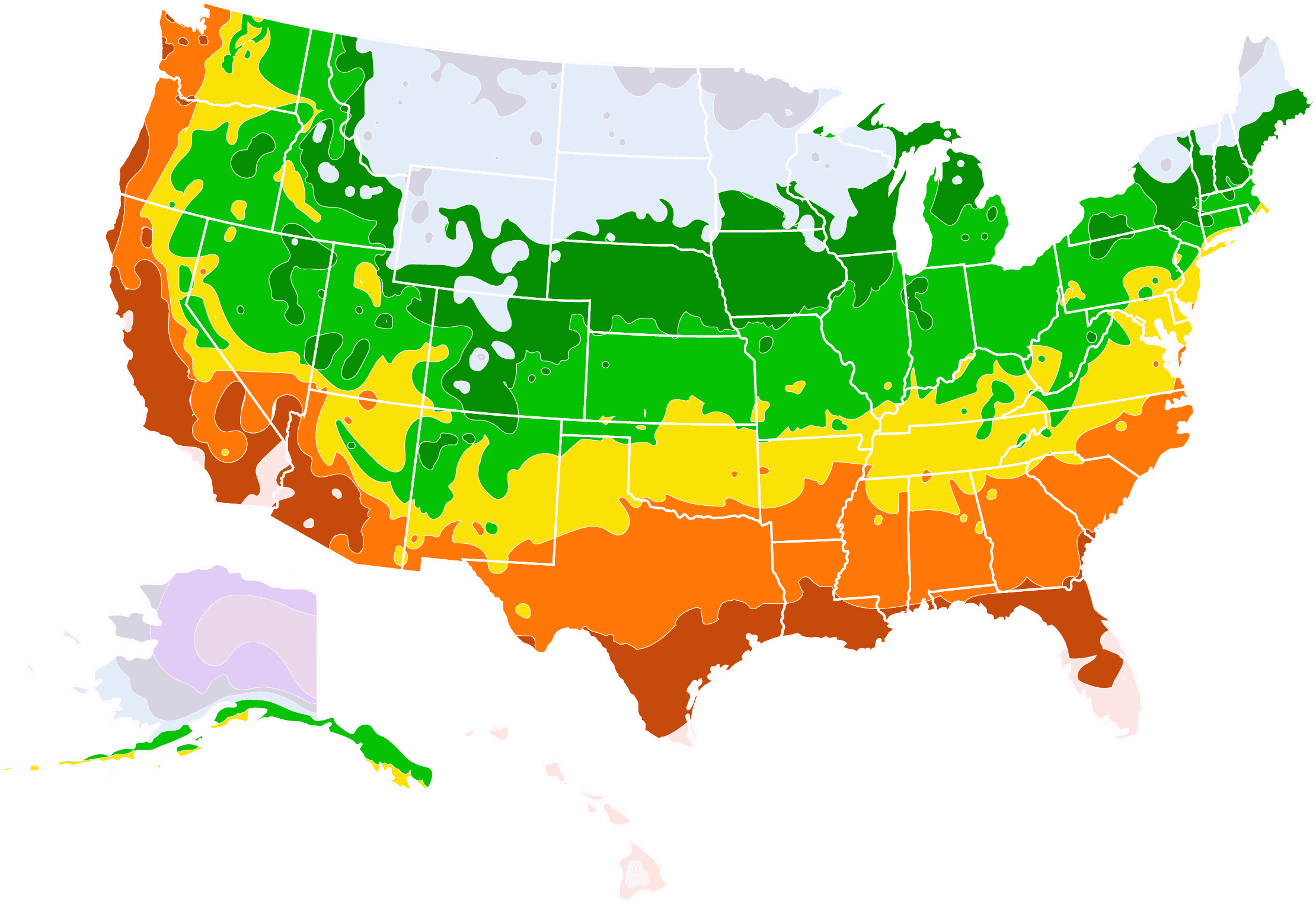- Home >
- Ground Cover Plants >
- Blue Pacific Juniper
Blue Pacific Juniper for Sale - Buying & Growing Guide
If you are on the hunt for a lovely evergreen ground cover that will work well in many growing locations, then look no further than the Blue Pacific Juniper. The Blue Pacific Juniper, or Juniperus conferta 'Blue Pacific,' has a reliable set of foliage and develops a lovely set of juniper berries as well. This plant also adapts to many soil types and grows slowly, meaning that it has very low pruning needs.
- The Blue Pacific Juniper has vibrant foliage and attractive cones.
- This plant is adaptable to many growing locations.
- The slow growth of this plant makes it easy to maintain without pruning.
Enter your zip code to find nearby stores that may carry this plant.
Plant Care
Sunlight

You should plant your Blue Pacific Juniper in an area that receives at least six hours of direct sunlight per day.
Watering
Water this plant weekly during the establishment period. After the first growing season, water this plant when the first two inches of soil have become dry.
Fertilizing

Feed this plant with a balanced fertilizer once per year in the spring.
Planting and Care
Planting instructions
The Blue Pacific Juniper adapts to many soil types, including dry soils and soils of varying acidity levels. Regarding sunlight, this plant has a chance to survive in partial shade but will perform best when it grows in full sunlight. While this plant does grow much more than a foot off the ground, it can spread several feet in every direction, which you should account for when spacing this plant. To plant your Blue Pacific Juniper, all you need to do is dig a hole that’s as deep as the root ball is tall and twice as wide.
Watering and nutrients
During the initial growing season, you should water your Blue Pacific Juniper about once per week to aid establishment. During every following growing season, you should supply water for this plant whenever you notice that the first two inches of soil have dried out. However, this plant will also show great drought tolerance as it matures. The best way to feed it is to apply a balanced fertilizer once per year during the early spring.
Pollination
As is true of most junipers, the Blue Pacific Juniper plants can be either male or female, which means that you’ll need two plants if you wish to conduct pollination. The male versions of these plants open their cones to release pollen into the air, which travels via wind currents to the female plants. Successful pollination results in the female plant developing a set of juniper berries. Those juniper berries each carry a seed surrounded by light blue flesh, which adds to the ornamental appeal of this plant during the later parts of the season.
Pruning
Most years, you will not need to prune your Blue Pacific Juniper at all. The main reason for this is that this plant grows quite slowly, meaning that it poses little to no threat of overtaking other plants in your garden. The Blue Pacific Juniper also grows in naturally low and spreading groundcover form, which limits the need for shaping. With that said, it remains beneficial to prune out any part of this plant that is dead or diseased.
Pests, diseases and animals
There is a handful of diseases that are common among junipers, with twig blight and tip blight being some of the most prevalent ones. Along with those disease complications, a juniper plant may also experience infestations of insects like spider mites, scale insects and aphids. However, the Blue Pacific Juniper stands out from other junipers for having better resistance to both pests and diseases. Along with avoiding infections and infestations, this plant is often deer resistant as well.
Achieving maximum results
Overall, the Blue Pacific Juniper is a plant that is easy to care for and can adapt to a wide range of growing conditions, including varying soil types. With that said, one of the most common threats to this plant is overwatering. Be sure to allow at least the first two inches of soil to dry out before watering this plant, or you may increase the risk of certain diseases. Also, the pruning needs can increase as this plant matures, as you may find more dead stems and foliage as it gets older.
FAQs
Can you grow the Blue Pacific Juniper in a container?
The Blue Pacific Juniper is small enough that you can grow it in a container. However, if you choose this approach, you should ensure that you find a container that is considerably wider than the plant's root ball to allow for proper root expansion. Yet, with that said, container growing is not ideal for the Blue Pacific Juniper since this plant looks best when it can spread along the ground in a traditional garden bed.
How fast does the Blue Pacific Juniper grow?
In most cases, the Blue Pacific Juniper will have a slow to moderate growth rate, often adding about 6 to 10 inches of new growth each season. This slower growth makes it very easy to control since this plant poses little to no risk of out-competing other plants in your garden. The same cannot be said of many other popular groundcover plants, which tend to spread quickly and can feature invasive tendencies.
What is the parent species of the Blue Pacific Juniper?
The parent species of the Blue Pacific Juniper is a plant that goes by the botanical name of Juniperus conferta. This plant is better known as the “Shore Juniper,” and it originates along the coast of Japan. This parent species is a low-growing plant that differs from the Blue Pacific Juniper greatly in height. While the Shore Juniper can reach 15 feet tall or more, the Blue Pacific Juniper rarely surpasses a foot.
Compare Similar Products
You can't add more Product Name - Product size to the cart.
OK